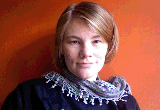 As the Third People’s Health Assembly (PHA) develops, it’s more and more obvious that global forces impact at a country level. Conversations about WHO reform, universal health coverage, and human resource constraints, among others, gave me an opportunity to reflect on how global forces shape issues at a national level. Some of these were raised at the South African National Health Assembly (NHA) that took place right before the PHA on 5 and 6 July 2012.
As the Third People’s Health Assembly (PHA) develops, it’s more and more obvious that global forces impact at a country level. Conversations about WHO reform, universal health coverage, and human resource constraints, among others, gave me an opportunity to reflect on how global forces shape issues at a national level. Some of these were raised at the South African National Health Assembly (NHA) that took place right before the PHA on 5 and 6 July 2012.
An intense debate at the PHA on the opaqueness of WHO reform pointed out that consultants, not constituents, largely drive the process, though the elephant in the room—the role of private donors, in particularly the Bill and Melinda Gates Foundation—was not dissected. Similarly, vital aspects of South Africa’s move towards a universal health coverage system, called the National Health Insurance programme (NHI), remain cloudy. This is, as at a global level, mostly to do with uncertainties around who holds the power over the NHI’s final design and implementation—the Department of Health or the Treasury? This need to recognise the balance of power as the first step towards affecting it came up again and again in both the NHA and PHA. Funding bodies are more likely than democratic processes to drive policy unless organisations or states are held to account. Without accountability there are often few means of ensuring these bodies act in the best interests of the community. One such sad example is the Conservative/Liberal coalition government’s dismantling of the NHS in the UK. (Though as David McCoy put it in the third plenary, the new government did keep its promise not to change the NHS—instead they dismantled it.) The route to accountability is therefore community mobilisation.
It’s ironic that countries such as South Africa are moving towards universal health coverage as Europe dismantles its systems, with Greece now an example of the very sickly “guinea pig of Europe.” However, the migration of health workers to Europe and North America remains a problem, with South Africa’s primary healthcare re-engineering initiative focused on using community health workers to support those clinicians the public system can retain, in line with the Brazilian model. There were calls at some PHA sessions for a long-term vision of human resource development, allowing for paradigms shifts among clinicians to see community involvement—not hospital based medicine—as the basis of their work. Whether this is possible, however, comes back yet again to political will and the question of who influences it. Presentations in both the NHA and the PHA keep circling back to the point that ultimately all health issues are a political struggle.
Annie Neo Parsons is a researcher and PhD candidate at the University of the Western Cape School of Public Health in South Africa. Her PhD focuses on how global funding for antiretroviral treatment in South Africa has impacted on the health service provision of primary care services to people receiving antiretroviral treatment in the public sector.
